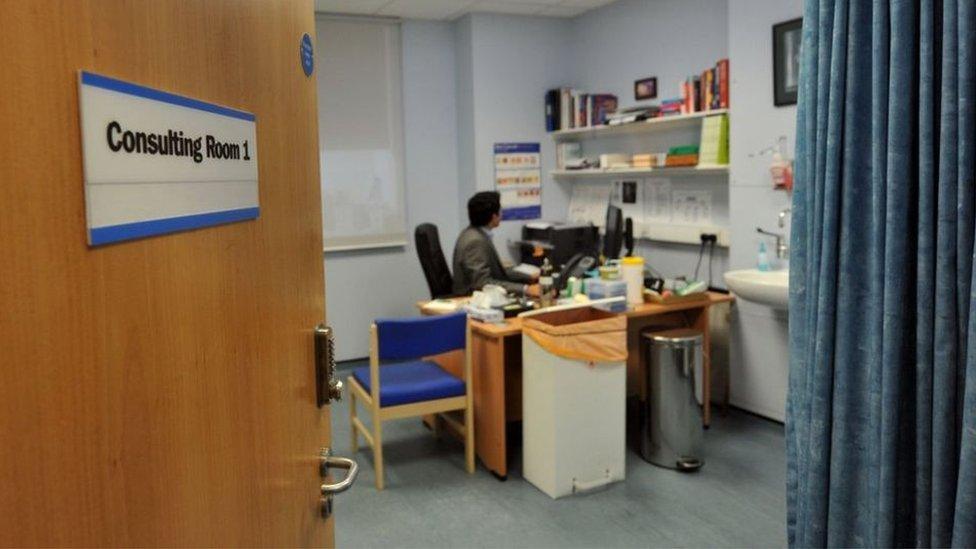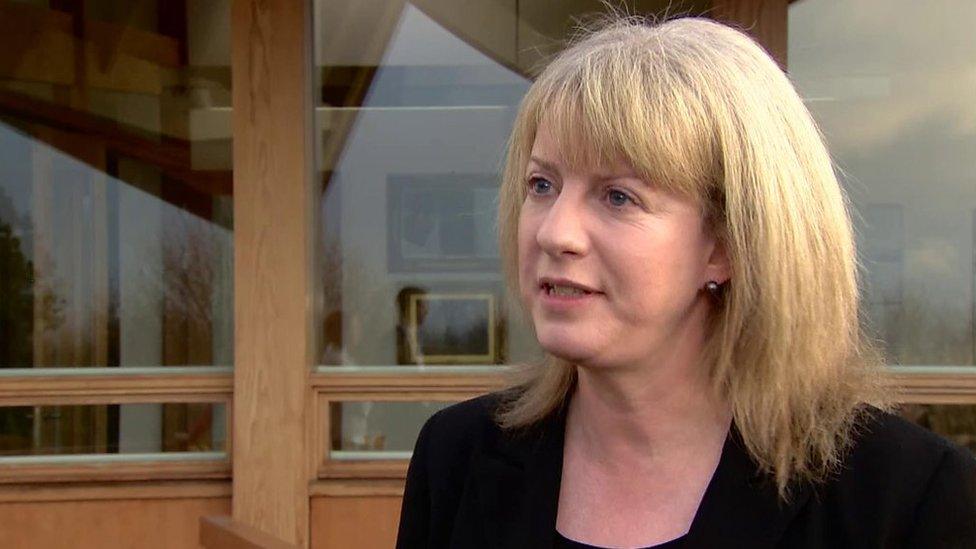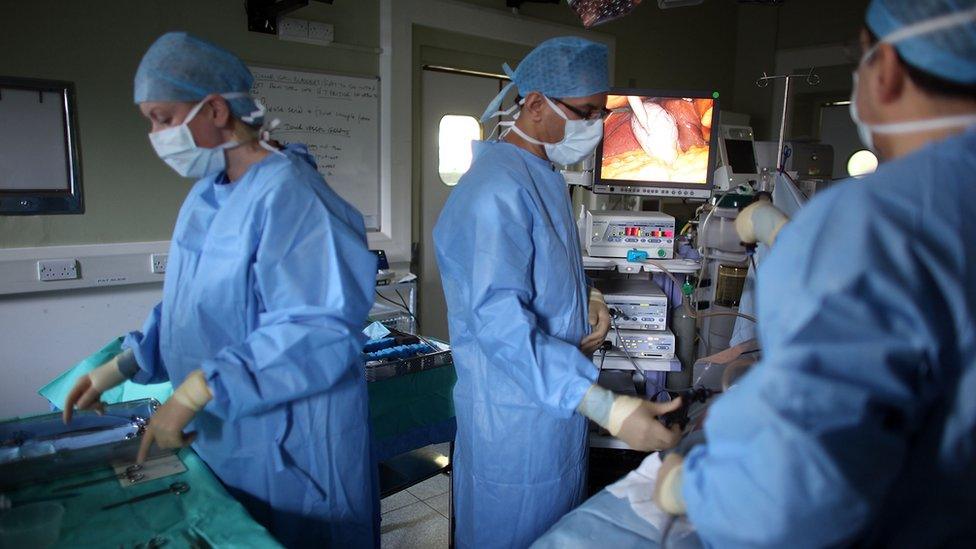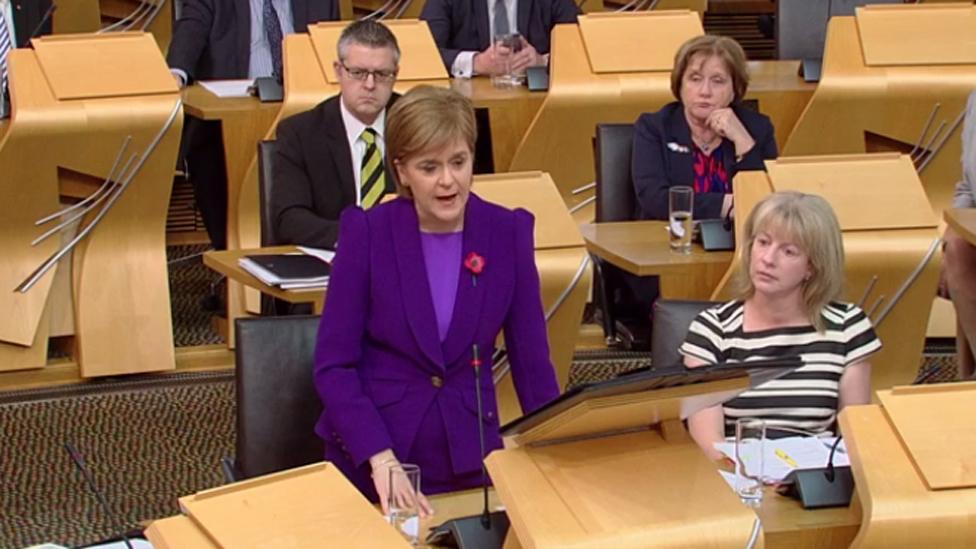BMA head warns NHS in Scotland 'struggling to cope'
- Published

The Scottish NHS is struggling to cope with the increasing demands being placed on it, according to the chairman of BMA Scotland.
Dr Peter Bennie said health service funding was stagnating despite the "unprecedented challenges" facing it.
And he called for an "honest debate" on how the NHS could be sustained for future generations.
The Scottish government recently published its blueprint for the future of the NHS.
The document calls for an end to the country's "fix and treat" approach, with greater emphasis on preventing people becoming ill in the first place, and intervening as quickly as possible to prevent their conditions becoming more serious.
'Urgent action'
It also sets out commitments to treating people closer to home rather than in hospital whenever possible, recruiting more GPs and nurses and regionalising some hospital services.
It followed an Audit Scotland report which showed that the NHS had met only one of its eight waiting time targets, with the service needing to make "unprecedented savings" next year.
In his Christmas message, Dr Bennie said: "Report after report on the state of the NHS in Scotland have set out the increasing scale of the challenges the health services faces.
"Audit Scotland reiterated what BMA Scotland have been saying for some considerable time: the NHS in Scotland is struggling to cope.
"But despite the body of evidence to show that urgent action is needed now, the much needed plans for action have been allowed to slip."

The BMA highlighted problems in recruiting and retaining doctors, particularly in rural areas
BMA Scotland is the trade union that represents the country's doctors.
Dr Bennie said Holyrood's health committee had highlighted major problems with recruitment and retention across the health and social care sectors in Scotland - not just the NHS - particularly in remote and rural areas.
He added: "The government's response must not simply repeat the tired mantra that Scotland is spending more money on the NHS than ever before, and has more nurses and doctors than ever before. This completely misses the point.
"Vacancies in the medical workforce are increasing and the range and scale of pressures on the service continue to grow. There are significant problems in recruitment and retention of doctors, nurses and allied health professionals, yet the official figures still struggle to capture the real extent of medical vacancies.
"Action is needed now to make Scotland a more attractive place to work if we are to address these vacancies which exist across consultant, GP, trainee and specialist posts."
'Virtually stagnant'
Dr Bennie went on to say that Scotland's ageing population meant the increasing demands on the health service were outstripping the available resources - a situation he argued was becoming unsustainable.
He said NHS funding had been "virtually stagnant across the UK" since the onset of austerity, with the UK spending a lower proportion of its GDP on healthcare than most comparable EU countries, with the gap growing in recent years.
He added: "If the NHS does not get the resources it needs to keep pace with demand, then the only alternative is to look at the range and models of services that can realistically be delivered within the budget provided.
"If the gap between demand and resources is going to continue, then there is no choice but to ask what the NHS in Scotland can and can't deliver in the future."

Shona Robison said three "crucial" plans for the future of the NHS had been published in the past few months
Responding to Dr Bennie, Health Secretary Shona Robison said she agreed on the need for a mature plan as a result of the changing nature of healthcare delivery.
She added: "That's why the last few months has seen the publication of three crucial building blocks for the transformational change required.
"The National Clinical Strategy is a blueprint for what health and social care will look like in the decades to come.
"The Chief Medical Officer's annual report focusing on realistic medicine calls for a new relationship between doctors and patients and families built on mutual trust and shared decision making.
"Finally, just this week, we published a National Delivery Plan with concrete actions for the next year and beyond."
But Scottish Conservative health spokesman Donald Cameron claimed the NHS in Scotland was "on its knees", and said the SNP administration had "no excuses" after 10 years in power.
He added: "This is yet another startling attack on the SNP's handling of the NHS, and it's time they started to listen.
"For too long the SNP has failed to prioritise our health service, and as a result standards have dropped with almost all national targets missed last year."
Scottish Labour's health spokesman, Anas Sarwar, said: "A decade of SNP mismanagement has increased pressure on staff in every part of our health service - from nurses who say their workload is getting worse, to GPs who say their surgeries are understaffed."
- Published19 December 2016

- Published27 October 2016
